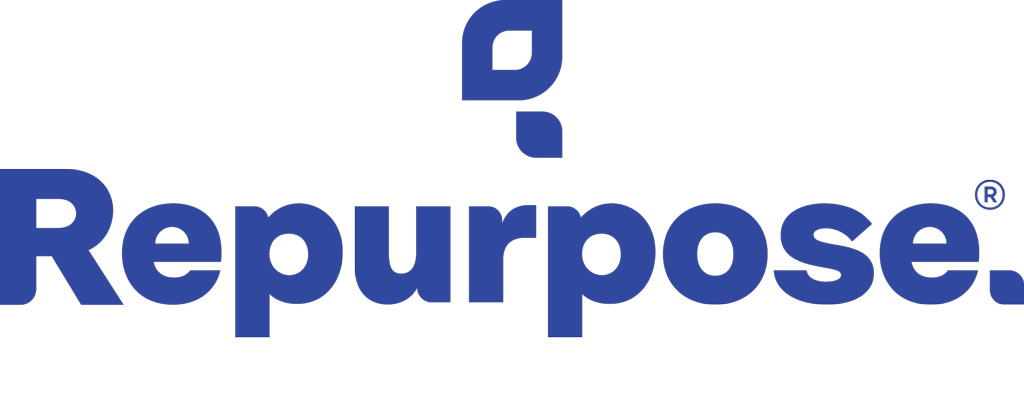9/12
Plant-Based Leaders | Repurpose
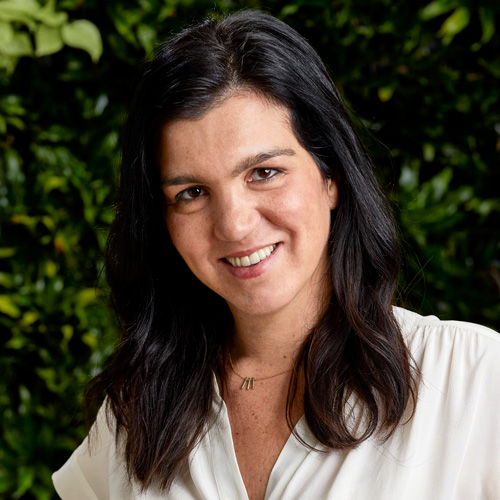
For this edition of Plant-Based Leaders, we interviewed Lauren Gropper, Co-Founder and CEO of PBPC member Repurpose, a consumer-facing disposable products brand making the plant-based switch easier for everyday Americans.
Q
Lauren, you bring a unique background to the plant-based products space. What inspired you to pivot to this industry and to start Repurpose?
A
I launched Repurpose in 2010 in response to the plastic pollution problem.
Prior to starting Repurpose, I was an environmental designer and professor, and helped Hollywood sets like Entourage, Food Network, HGTV, and the Travel Channel use more sustainable practices and goods. My background in design gave me a unique perspective.
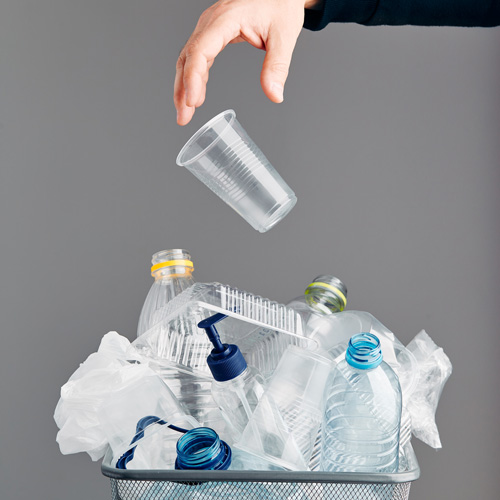
It was actually on set when I was overwhelmed by the plastic pollution problem – cast and crew used loads of plastic cups, plates, and cutlery throughout long filming hours – and there were no sustainable alternatives. We spent all this time and effort to “greenify” sets, and here was a pile of waste. I knew there had to be a solution.
Q
Talk to us about some of your products.
A
Our core collection is plant-based compostable disposable tableware. It’s how the brand started, and it’s our bread and butter. Over 70% of Americans feel guilty about using single-use products. Repurpose offers products you can feel good about using — better for you and the planet!
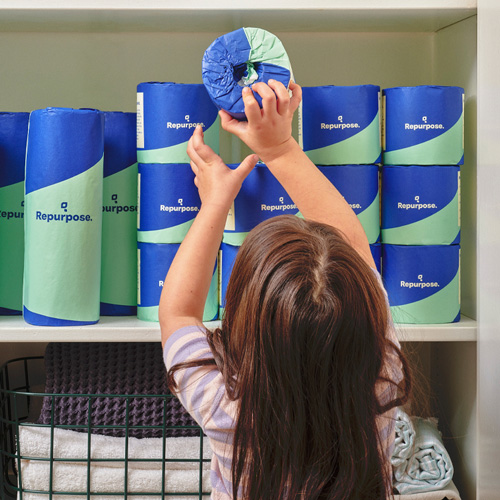
In the last few years, we’ve also expanded categories of plant-based waste bags, bamboo toilet paper, and paper towels. Our goal is to become a household name for easy, convenient, and reliable eco-swaps for your home.
We’re always looking around the home to determine what we could do to make somebody’s life more convenient in a sustainable way. We’re constantly considering if there are products that could be improved upon, whether that’s a new offering or an even more sustainable version of our existing products.
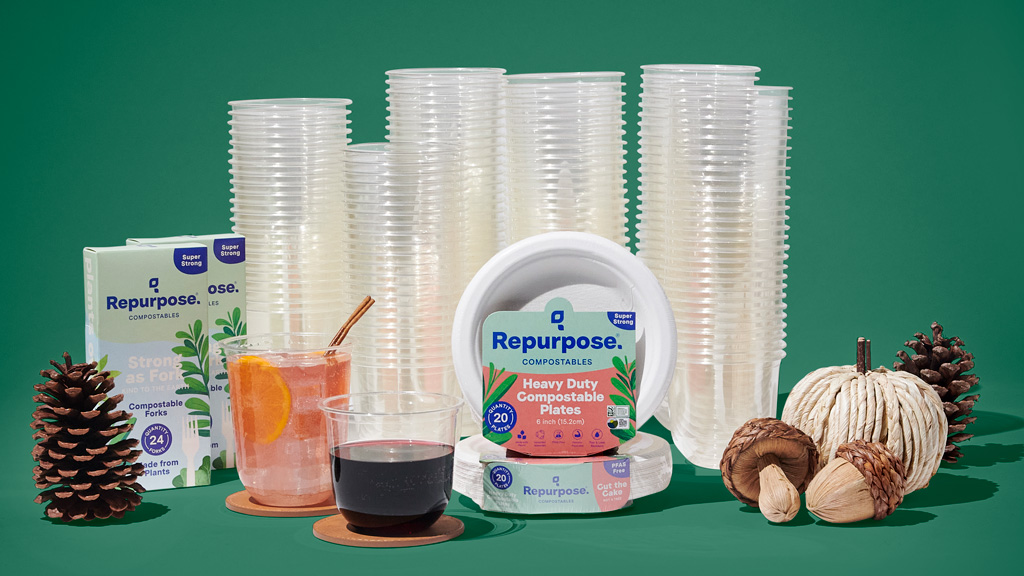
Q
Many PBPC members are business-to-business, but you are consumer-facing. Talk to us about your growth strategy.
A
Repurpose was the first brand to make the compostable household goods category mainstream and available in retailers nationwide. We’re in 12,000 stores: Whole Foods, Albertson’s, Kroger, Natural Specialty Food Stores, Amazon, and Repurpose.com.
Today, we own one-third of the compostable tableware category. We’re also the leader in the natural and specialty tableware category in grocery stores, competing against brands like Dixie, Hefty, Solo, and World Centric. We’ve outpaced the eco-compostable category growth by fivefold within the last year.
Since we started, Repurpose has replaced 536 million pieces of plastic.
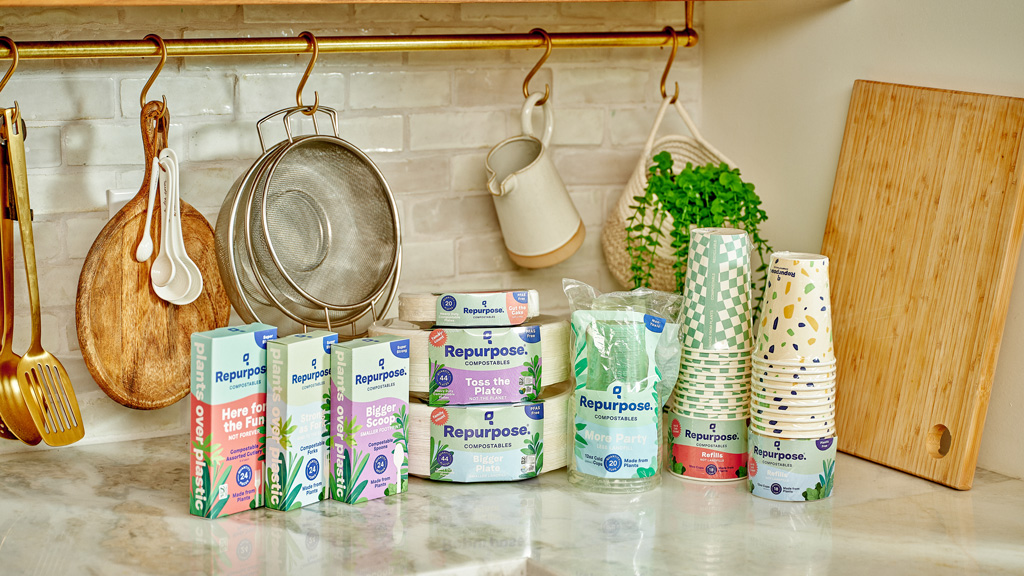
Q
You’ve positioned yourself as a lifestyle brand, can you talk to us about that strategy?
A
This is a commodity category full of legacy players. To differentiate ourselves on the shelf, we leverage brand and storytelling to inspire and activate our community of eco-enthusiasts and help make sustainable changes for a better future.
Consumers want to know what businesses stand for. We’re a women-founded and led business created out of an urgent need for change rather than a trend. We don’t believe you should compromise style, quality, and function to live sustainably. Positioning ourselves as a lifestyle brand allows us to tell that story and showcase how Repurpose fits into your everyday life and values.
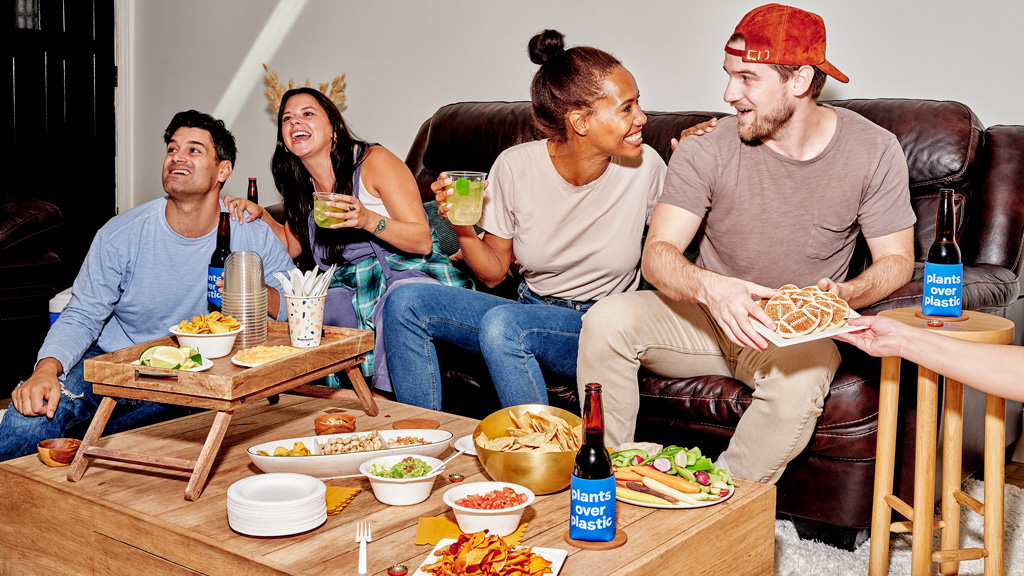
Q
What has surprised you most about how consumers view these products?
A
People are very interested in plant-based products. There’s so much guilt around the plastic problem. You just need to provide a solution that doesn’t inconvenience consumers, that meets them where they are.
And then there’s so much confusion around recycling. People believe that they put something in their blue bin and it gets turned into a new product. But so little actually gets recycled. Before I got into this industry, I thought recycling was a perfect loop too.
Q
Can you share any research around who’s buying your products?
A
Interestingly, the largest shoppers of disposable tabletop goods are Baby Boomers [those born between 1946-1964], but they aren’t necessarily the ones who are as interested in sustainability.
Our target is Moms who are Millennials [born between 1981-1996].
And their interest comes from all corners of the country – people from rural Texas to the coastal towns of Maine are buying our products. People want to buy sustainable products – as long as they’re within a price range that’s acceptable to them and perform as well as what they’re used to. We’re trying to show that you can have great quality, a great price, and a great product, and hopefully, then you’re on the Repurpose path for life.
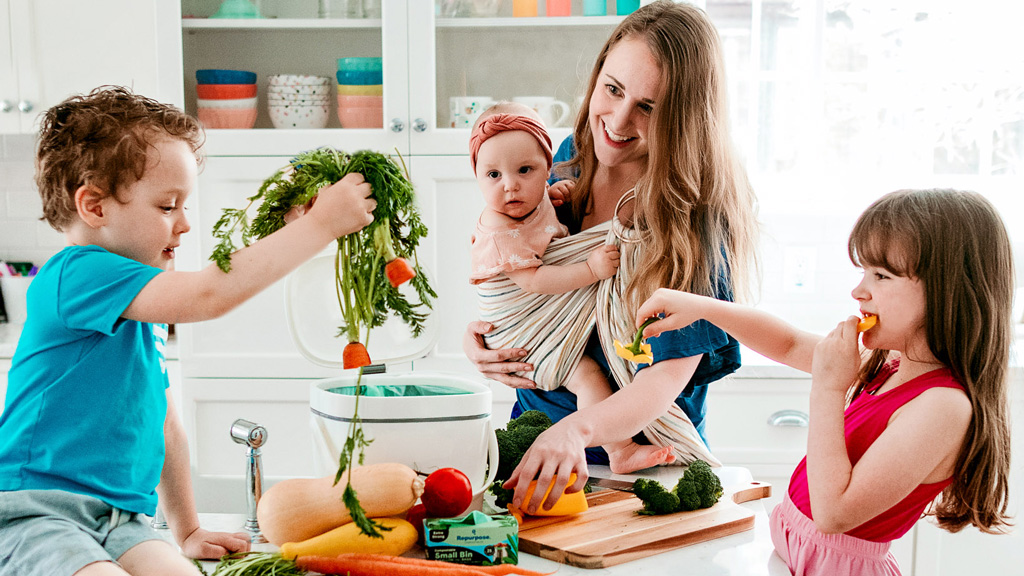
Q
We’d also love to hear about some of the places you’ve been featured (Martha Stewart, Chrissy Teigen’s blog) and some of your partners.
A
We won’t solve the plastic problem on our own. We look to changemakers and trendsetters to help tell our story. Whether it’s a product recommendation or how Repurpose fits into their event, we want to help promote that sustainable swaps can be easy, fun, stylish, and relevant!
We can’t always communicate everything on packaging. Getting to tell our story across social media, through creators and press has been a powerful tool to educate and inspire.
Q
You’re also committed to consumer education around compostables. What can you tell us about what you’ve learned from that effort?
A
We try to break it down for our consumers as easily as possible. And we always focus on three points, which seem to resonate the most with consumers:
- Designed to Breakdown: The best part of certified compostable products is that they are designed to break down and undergo significant degradation testing to ensure those claims are true. We don’t want to outlive the items we use once or twice.
- Lowering our Impact on the Planet: By using plant-based alternatives instead of conventional materials for single-use items, compostable products typically require less water and energy to produce.
- Non-Toxic: All BPI-certified compostable products must pass a series of toxicity tests to achieve certification. Our products are certified non-toxic and made without PFAS.
Click image to view larger size
Q
Repurpose is feedstock agnostic. What are some of the sources you use, and why did you choose that strategy? Are you actively seeking new feedstocks for additional or differentiated products?
A
We chose to be material agnostic from the beginning. We are looking for the best sustainable swaps for each category and item. What works for plates, doesn’t necessarily work for cutlery. We want to make sure we don’t compromise on the performance of our products, or the look and feel. If items do not function, consumers won’t make the swap.
We are always looking for new materials — we believe in embracing innovation. It’s very exciting for us to be in this position where we can take somebody’s amazing science experiment and make it and commercialize it.
And it’s important we continue to evolve and embrace technologies that deliver on our sustainability and performance goals and are affordable. We’re currently using NatureWorks PLA and Novalex PHA as well. In terms of new sources, we are looking at post-agricultural waste from rice production in the Southeast. Anytime we can use post-ag waste to make a new product we will.
Click image to view larger size
Q
You’ve been in business for 14 years. Do you have any advice for companies or founders who are just starting out either on getting started or achieving such longevity?
A
For those getting started, go in with thick skin – you are going to hear no, be ignored or overlooked, but you can’t let that discourage you. The first step to success starts with just one yes. When Repurpose was first starting out, I had to understand the “why” behind Repurpose – what our goals are, why I wanted to start the business, and what I as a leader and CEO stand for.
In terms of longevity, ensure that you are getting into a space that fulfills your purpose. Creating and sustaining a successful business takes an infinite amount of time, energy, and effort and a whole lot of grit and resilience. It’s also important to team up with great partners. When you’re working with a team you know is aligned with your company’s vision, that gives you a sense of stability and shared values.
Q
How do you see government policy impacting the plant-based products industry?
A
Unfortunately, today to meet the USDA’s National Organic Program (NOP) organic standard, compost feedstocks cannot include bioplastics. But when bioplastics break down into compost, it’s truly circular. This government designation is actually fracturing the system.
The awkwardness around new labeling requirements is also very cumbersome for companies. It makes it challenging to communicate what’s in a product. The California legislators are still fleshing out how labeling will be put into law in 2026.
Q
Do you favor a state-by-state approach or nationwide approach to policymaking and why?
A
A nationwide approach would certainly help brands like ours that are distributed nationally. It quickly becomes cost-prohibitive and challenging to cater to one state, so we end up making adjustments to our entire line to ensure compliance.
Ultimately, the goal is less waste and limiting contamination in our waste streams. Whatever we can do to make those advances, we’re glad to support them.
We hope that there is enough movement and coalition in years to come for more consistent policy across the board that promotes compostable products and composting.
Q
How has PBPC impacted your company and the policy environment? What would you tell corporate peers who might be prospective members?
A
PBPC offers us an authentic and real-time opportunity to meet and network with industry professionals who represent the full spectrum of the bioeconomy. Connecting with farmers, bio-developers, customer buyers, bankers, third-party certifiers, and government policymakers, all in one room, toward a common goal is how we will make progress toward a greener and brighter future.

Connecting with farmers, bio-developers, customer buyers, bankers, third-party certifiers, and government policymakers, all in one room, toward a common goal is how we will make progress toward a greener and brighter future.
Join our growing group of plant-based leaders working toward a more sustainable economy. Learn more about the benefits of PBPC membership.

